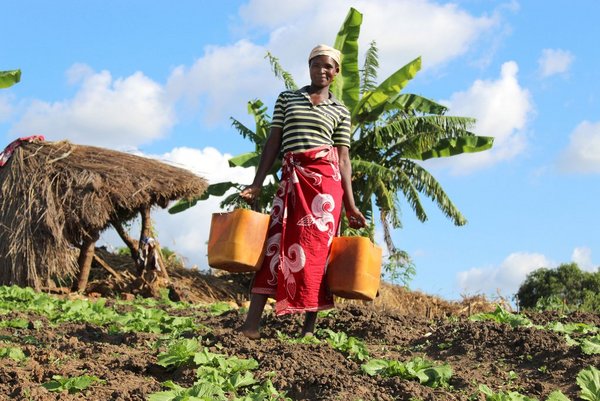 Read this article in French
Read this article in French- Share this article
- Subscribe to our newsletter
Rural women are particularly vulnerable to climate impacts
A new report published by the Food and Agriculture Organization of the United Nations (FAO) in March 2024, in the forefront of the International Women’s Day, highlights a stark reality: each year in low and middle-income countries (LMICs), female heads of households in rural areas suffer significantly greater financial losses because of climate change than men. According to the Unjust Climate report, on average, female-headed households lose eight per cent more of their income due to heat stress and three per cent more because of floods compared to male-headed households.
If the average temperatures were to increase by just 1°C, these women would face a staggering 34 per cent greater loss in their total incomes compared to men. Considering the significant existing differences in agricultural productivity and wages between women and men, the study suggests that if not addressed, climate change will greatly widen these gaps in the years ahead.
Rural women, people living in poverty, and older populations most affected
Climate change impacts differ not just by gender but also by socioeconomic status. Heat stress, or overexposure to high temperatures, exacerbates the income disparity between rural households classified as poor, who suffer a five per cent greater loss than their better-off neighbours, and the figures for flooding are similar. Extreme temperatures, meanwhile, worsen child labour and increase the unpaid workload for women in poor households.
Indeed, barriers such as access to resources, services and employment opportunities affect rural people’s capacity to adapt to and cope with climate change. For example, discriminatory norms and policies place a disproportionate burden on women for care and domestic responsibilities, limit their rights to land, prevent them from making decisions over their labour and hamper their access to information, finance, technology and other essential services.
Similarly, households led by young individuals have an easier time finding off-farm job opportunities during extreme weather conditions compared to older households. This makes their incomes less susceptible to these events.
Extreme weather also compels impoverished rural households to resort to maladaptive coping strategies. These may include reducing income streams, selling off livestock and shifting spending away from their farms. These actions, however, exacerbate their vulnerability to long-term climate changes.
Climate vulnerabilities of rural people neglected national climate plans
The study finds that rural people and their climate vulnerabilities are barely visible in national climate plans. In the nationally determined contributions (NDCs) and national adaptation plans (NAPs) of the 24 countries analysed in the report, only 6 per cent of the 4,164 climate actions proposed mention women, 2 per cent explicitly refer to youths, less than 1 per cent mention poor people and about 6 per cent refer to farmers in rural communities.
Similarly, of the total tracked climate finance in 2017/18, only 7.5 per cent went towards climate change adaptation, less than 3 per cent to agriculture, forestry and other land uses, or other agriculture-related investments, and just 1.7 per cent, amounting to roughly USD 10 billion, reached small-scale producers.
Agricultural policies also miss the opportunity to address gender equality and women's empowerment and intersecting vulnerabilities such as climate change. An analysis of agricultural policies from 68 low- and middle-income countries done by FAO last year showed that about 80 per cent of policies did not consider women and climate change.
(FAO/ile)
Read more on the FAO website





Add a comment
Comments :
Neighboring Côte d’Ivoire is a testimonial of what I am speaking of here.